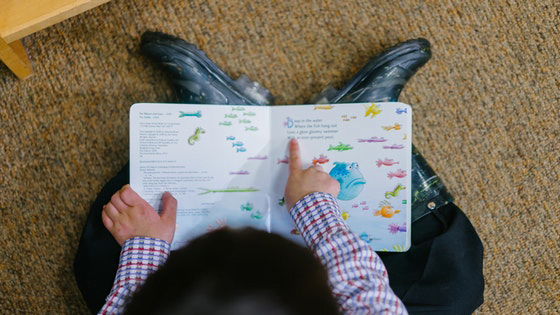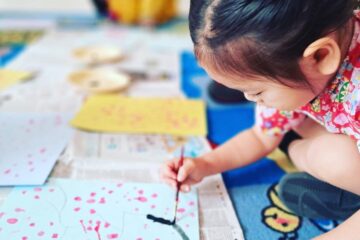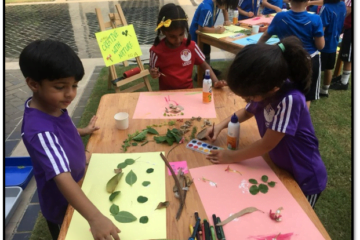When we read a story for our loved ones, we tend to involve ourselves in the time and space of the book. We begin to exist together in the warmth and the comfort of the words. This builds a sense of security. Likewise, it leaves our child to believe in the endless possibilities of creative imaginations. When you read “Goodnight Moon” or “Guess, How Much I love you” with your child, it is the bond that you develop that is important. Playschool or preschool kids who had been read to at least three times a week have a greater ability to decode words in comparison to the children who are read to less often.
Why Is Reading Important?
Books provide kids with literary opportunities to travel outside their small imagination worlds to become aware of how others live. By reading books, young ones learn about values and morals in a way that is fun and age appropriate. “Slow and steady wins the race, Sharing is Caring, Friend in need is a friend indeed, Treat others how you want others to treat you”- these are some values for early years.
We use these true to life quotes often without realizing how they have been teaching us in childhood through moral stories. Books offer a wider view than most of us can ever hope to achieve in our daily lives.
Stages of Reading
From preschool, playschool or nursery school through third grade, when kids are just starting to read, the focus in all subjects is typically on the teacher talking to the kids. At this stage, teaching is verbal and the kids with the largest vocabularies have an advantage because they understand most of what the teacher is saying. Books, like magazines and newspapers, contain advanced and complex language that uses complete sentences. So it makes sense that a child who hears more sophisticated words has a giant advantage over a preschool child who hasn’t heard those words.
Introduce your children to various authors and their style of writing. This exposes them to different worlds of rhymes, images, songs, and stories. Each story brings out the fantasy and captures the creative imagination, creating a sense of anticipation in each of the learners.
Long-Term Benefits of Reading
Books enable parents and teachers to give young children the best gift of storytelling. A gift that creates life, love, culture, fantasy, adventure, and mystery. It takes us into a world where our imagination knows no boundaries and the impossible is real. But no matter what or how many books we recommend. As a result, what matters is the time that you read to your child. It is this time that the children will always cherish for life.
Reading helps a child’s cognitive development
- In the first five years, a child’s brain is developing rapidly and at a faster rate than any other time of their life
- A child’s brain is continuously forming a connection which strengthens activities like reading and listening.
- Reading to your child and then teaching them to read encourages healthy brain development that lasts a lifetime.
- Story reading is also a catalyst for a child’s intellect, imagination, and curiosity. It enables them to learn the difference between real and make-believe.
Reading develops a child’s oral language
- Learning and reading expose a child to pictures, letters, and words, shapes, sounds, and names.
- Reading builds a child’s vocabulary and interesting illustrations. Rhymes can encourage them to talk about what they are seeing and thinking.
Preschool – Reading helps a child’s emotional development
- Reading always tends to be a one-on-one or small group experience.
- Cuddling up with a book allows reading to become a nurturing activity. It can bring a parent and child closer together.
- This moment is rich for learning and supports a child’s emotional development.
In the early years of playschool, preschool or nursery school – bonding with your child over books is the building blocks. As a result, your child’s later social; communication and interpersonal skills improve a lot.



